This article was co-authored by Roy Nattiv, MD. Dr. Roy Nattiv is a Board-Certified Pediatric Gastroenterologist in Los Angeles, California. With over 20 years of experience he specializes in a broad range of pediatric gastrointestinal and nutritional illnesses such as constipation, diarrhea, reflux, food allergies, poor weight gain, SIBO, IBD, and IBS. He completed his pediatric residency at the Children’s Hospital at Montefiore, Albert Einstein College of Medicine in New York, and his fellowship at the University of California, San Francisco (UCSF). While at UCSF, he was a California Institute of Regenerative Medicine (CIRM) fellowship trainee and was awarded the North American Society for Pediatric Gastroenterology, Hepatology, and Nutrition (NASPGHAN) Fellow to Faculty Award in Pediatric IBD Research. Dr. Nattiv received his undergrad degree from the University of California, Berkeley, and his medical degree (MD) from the Sackler School of Medicine in Tel Aviv, Israel.
There are 12 references cited in this article, which can be found at the bottom of the page.
This article has been viewed 26,367 times.
It’s common to feel like retching or gagging after vomiting, and home remedies can usually ease an upset stomach. Try sipping cold, clear liquid to soothe your digestive system and prevent dehydration. If possible, avoid activity and rest in an upright position until your symptoms pass. Manage stomach sensitivity by eating smaller meals, eating slowly, and drinking water in between meals instead of at meals. If your symptoms continue, ask your doctor to rule out an underlying condition or recommend medication.
Steps
Trying Home Remedies
-
1Take small sips of a clear liquid. Sipping room temperature water, flat ginger ale, a sports drink, or other non-caffeinated drink will help prevent dehydration and may help settle your stomach. If possible, take a teaspoon-sized sip every few minutes.[1]
- Try ice chips if you can’t keep anything else down.
- Avoid acidic drinks, like citrus juice, as these can upset your stomach. You should also stay away from caffeinated drinks, like coffee or cola, as these can worsen nausea.
-
2Relax in an upright position. After vomiting, sit in an upright position or in a propped up lying position. Activity right after vomiting can cause worsen nausea and retching. Sitting upright will help ease your digestive system and, if you fall asleep and vomit again, lying flat could pose a choking risk.[2]
- While resting, try relaxation techniques to distract yourself from feeling sick. Listen to soothing music, watch a funny movie, or talk to a friend or family member.[3]
Advertisement -
3Get rid of bad tastes with mints. Hard candy, like lemon drops or mints, can help ease the urge to retch or vomit. Go for your favorite flavors to get rid of bad tastes that might make you sick.[4]
- You shouldn’t brush your teeth after vomiting, since it could strip weakened enamel layers. As an alternative, you can get the bad taste out of your mouth by gargling with water or a mixture of water and nonalcoholic mouthwash.
-
4Avoid solid food during a vomiting spell. Wait four or five hours until you’ve stopped vomiting before you try to keep down solid food. A meal could further upset your stomach and cause nausea, retching, or vomiting.[5]
- After a few hours, go for bland foods, like crackers or dry, cold toast.
-
5Drink ginger tea. Ginger can soothe the digestive system, and ease nausea and retching. Try making a tea by slicing a small piece of ginger root and steeping it in boiling water for a few minutes. Let the tea cool until it’s safe to drink, then sip it slowly.[6]
Consulting a Doctor
-
1Seek medical attention for vomiting that lasts more than four hours. Uncontrolled vomiting for more than more fours straight is a cause for concern. If you can’t stop vomiting and aren’t able to keep down any liquids, you might need medical attention to avoid dehydration.[7]
- You should also see a doctor promptly if you vomit blood, are experiencing diarrhea, or have a fever.
-
2Ask your doctor if you should stop taking oral medications. If you take any oral medications regularly, taking them during a vomiting spell could upset your stomach. Further, if you vomit them up immediately, your body didn’t absorb them.[8]
- Call your doctor or pharmacist and tell them about your condition. Ask them, “Should I hold off taking my prescription until a few hours after I’ve stopped vomiting?”
- If you are vomiting for over 4 hours and have missed your diabetic, seizure, or blood pressure medication, consult a doctor or seek emergency medical care. They can give you the necessary medications via injections.
-
3Have your doctor test for underlying conditions. Vomiting and retching could be associated with any number of medical conditions, from food poisoning to chronic digestive issues or migraines.[9] If you experience regular patterns of vomiting and retching, you should talk to your doctor about imaging, urine, and blood tests to diagnose any underlying conditions.[10]
- X-ray and ultrasound imaging can rule out ulcers, blockages, gallstones, and other issues.
- Blood and urine tests can detect infections or kidney issues.
-
4Ask your doctor to recommend a medication. Talk to your doctor or pharmacist about taking an over the counter or prescription medication.[11] Ask them if they recommend an anti-nausea or antacid, or combination of the two. If your digestive issues are related to anxiety, ask them about a prescription anti-anxiety medication.[12]
- If you’re undergoing cancer treatment therapy and haven’t already been prescribed an antiemetic, talk to your doctor or specialist about taking a medication to relieve your nausea for your specific form of treatment.[13]
Managing Nausea and Vomiting
-
1Take medication as directed. If your doctor has recommended an anti-nausea, antacid, or anti-anxiety medication, take it daily or at the first sign of nausea according to their instructions. If you find that your medication is ineffective, ask your doctor or pharmacist to modify your treatment regimen.[14]
- It might take some time to tailor your treatment plan to combat symptoms of chronic conditions, like cyclic vomiting syndrome or migraine-related episodes.
- Ask your doctor or pharmacist to recommend an alternative medication if you experience any side effects, such as diarrhea, headache, dizziness, or drowsiness.
-
2Try an over-the-counter antacid. If you don’t have prescription medication and need a quick fix, first try getting an antacid, such as alka seltzer, from your local pharmacy. This may be all you need to settle your stomach. Typically, antacids come in chewable tablet, effervescent tablet, or gummy form.
-
3
-
4Eat smaller meals throughout the day. Larger meals can overwhelm and upset your stomach. Try eating five smaller meals instead of three larger meals per day. Eat slowly and avoid rushing through meals.[17]
- Rest after you eat in an upright position to make digestion easier.
-
5Watch for potential food allergies. Sometimes nausea, retching, and vomiting can be the result of a food allergy.[18] Pay attention to what you eat so that you can make note of any specific foods that upset your stomach.[19]
- If you discover that you may have a food allergy, make an appointment with your doctor to get tested.
-
6Get plenty of rest. Whenever you feel like retching or vomiting, cease activity to avoid worsening your nausea. Take some time to rest until your symptoms pass.[20]
- Vomiting and retching take a toll on your body, so make sure to get extra rest during a vomiting spell.
Expert Q&A
-
QuestionWhat are the causes of nausea?
 Roy Nattiv, MDDr. Roy Nattiv is a Board-Certified Pediatric Gastroenterologist in Los Angeles, California. With over 20 years of experience he specializes in a broad range of pediatric gastrointestinal and nutritional illnesses such as constipation, diarrhea, reflux, food allergies, poor weight gain, SIBO, IBD, and IBS. He completed his pediatric residency at the Children’s Hospital at Montefiore, Albert Einstein College of Medicine in New York, and his fellowship at the University of California, San Francisco (UCSF). While at UCSF, he was a California Institute of Regenerative Medicine (CIRM) fellowship trainee and was awarded the North American Society for Pediatric Gastroenterology, Hepatology, and Nutrition (NASPGHAN) Fellow to Faculty Award in Pediatric IBD Research. Dr. Nattiv received his undergrad degree from the University of California, Berkeley, and his medical degree (MD) from the Sackler School of Medicine in Tel Aviv, Israel.
Roy Nattiv, MDDr. Roy Nattiv is a Board-Certified Pediatric Gastroenterologist in Los Angeles, California. With over 20 years of experience he specializes in a broad range of pediatric gastrointestinal and nutritional illnesses such as constipation, diarrhea, reflux, food allergies, poor weight gain, SIBO, IBD, and IBS. He completed his pediatric residency at the Children’s Hospital at Montefiore, Albert Einstein College of Medicine in New York, and his fellowship at the University of California, San Francisco (UCSF). While at UCSF, he was a California Institute of Regenerative Medicine (CIRM) fellowship trainee and was awarded the North American Society for Pediatric Gastroenterology, Hepatology, and Nutrition (NASPGHAN) Fellow to Faculty Award in Pediatric IBD Research. Dr. Nattiv received his undergrad degree from the University of California, Berkeley, and his medical degree (MD) from the Sackler School of Medicine in Tel Aviv, Israel.
Board Certified Gastroenterologist Common cold, flu, bacterial infection, constipation, food allergies, neurologic issues, and side effects of medications can cause nausea.
Common cold, flu, bacterial infection, constipation, food allergies, neurologic issues, and side effects of medications can cause nausea. -
QuestionHow do you deal with cyclic vomiting syndrome?
 Roy Nattiv, MDDr. Roy Nattiv is a Board-Certified Pediatric Gastroenterologist in Los Angeles, California. With over 20 years of experience he specializes in a broad range of pediatric gastrointestinal and nutritional illnesses such as constipation, diarrhea, reflux, food allergies, poor weight gain, SIBO, IBD, and IBS. He completed his pediatric residency at the Children’s Hospital at Montefiore, Albert Einstein College of Medicine in New York, and his fellowship at the University of California, San Francisco (UCSF). While at UCSF, he was a California Institute of Regenerative Medicine (CIRM) fellowship trainee and was awarded the North American Society for Pediatric Gastroenterology, Hepatology, and Nutrition (NASPGHAN) Fellow to Faculty Award in Pediatric IBD Research. Dr. Nattiv received his undergrad degree from the University of California, Berkeley, and his medical degree (MD) from the Sackler School of Medicine in Tel Aviv, Israel.
Roy Nattiv, MDDr. Roy Nattiv is a Board-Certified Pediatric Gastroenterologist in Los Angeles, California. With over 20 years of experience he specializes in a broad range of pediatric gastrointestinal and nutritional illnesses such as constipation, diarrhea, reflux, food allergies, poor weight gain, SIBO, IBD, and IBS. He completed his pediatric residency at the Children’s Hospital at Montefiore, Albert Einstein College of Medicine in New York, and his fellowship at the University of California, San Francisco (UCSF). While at UCSF, he was a California Institute of Regenerative Medicine (CIRM) fellowship trainee and was awarded the North American Society for Pediatric Gastroenterology, Hepatology, and Nutrition (NASPGHAN) Fellow to Faculty Award in Pediatric IBD Research. Dr. Nattiv received his undergrad degree from the University of California, Berkeley, and his medical degree (MD) from the Sackler School of Medicine in Tel Aviv, Israel.
Board Certified Gastroenterologist You should sleep well and stay hydrated. Avoid trigger foods like chocolates and cheese. Do not eat too spicy or salty food or food that has MSG. You can take over-the-counter treatments or use coenzyme Q10 or carnitine supplementation to prevent vomiting episodes.
You should sleep well and stay hydrated. Avoid trigger foods like chocolates and cheese. Do not eat too spicy or salty food or food that has MSG. You can take over-the-counter treatments or use coenzyme Q10 or carnitine supplementation to prevent vomiting episodes.
References
- ↑ https://www.healthyhorns.utexas.edu/HT/HT_nausea.html
- ↑ https://my.clevelandclinic.org/health/articles/nausea-and-vomiting
- ↑ http://chemocare.com/chemotherapy/side-effects/nausea-vomiting-chemotherapy.aspx
- ↑ https://www.cancer.org/treatment/treatments-and-side-effects/physical-side-effects/nausea-and-vomiting/nausea-and-vomiting.html
- ↑ https://health.clevelandclinic.org/2014/07/what-causes-vomiting-and-what-should-you-do-about-it/
- ↑ http://www.healthyandnaturalworld.com/dry-heaving/
- ↑ https://www.unitypoint.org/livewell/article.aspx?id=d36af789-0de7-4865-aa9a-c2281da7d093
- ↑ https://health.clevelandclinic.org/2014/07/what-causes-vomiting-and-what-should-you-do-about-it/
- ↑ Roy Nattiv, MD. Board Certified Gastroenterologist. Expert Interview. 14 October 2020.
- ↑ https://www.niddk.nih.gov/health-information/digestive-diseases/cyclic-vomiting-syndrome
- ↑ Roy Nattiv, MD. Board Certified Gastroenterologist. Expert Interview. 14 October 2020.
- ↑ https://www.niddk.nih.gov/health-information/digestive-diseases/cyclic-vomiting-syndrome
- ↑ http://www.cancer.net/research-and-advocacy/asco-care-and-treatment-recommendations-patients/preventing-vomiting-caused-cancer-treatment
- ↑ https://www.niddk.nih.gov/health-information/digestive-diseases/cyclic-vomiting-syndrome
- ↑ Roy Nattiv, MD. Board Certified Gastroenterologist. Expert Interview. 14 October 2020.
- ↑ https://my.clevelandclinic.org/health/articles/nausea-and-vomiting
- ↑ https://www.nhs.uk/pregnancy/related-conditions/common-symptoms/vomiting-and-morning-sickness/
- ↑ Roy Nattiv, MD. Board Certified Gastroenterologist. Expert Interview. 14 October 2020.
- ↑ Peter Gardner, MD. Board Certified Gastroenterologist. Expert Interview. 25 August 2020.
- ↑ https://www.nhs.uk/pregnancy/related-conditions/common-symptoms/vomiting-and-morning-sickness/


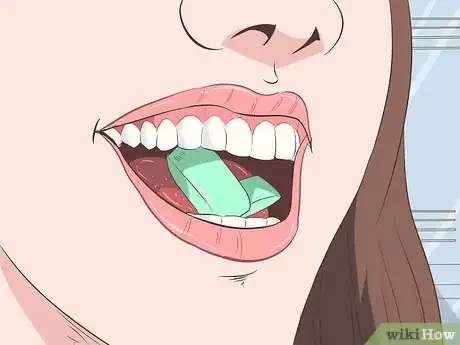
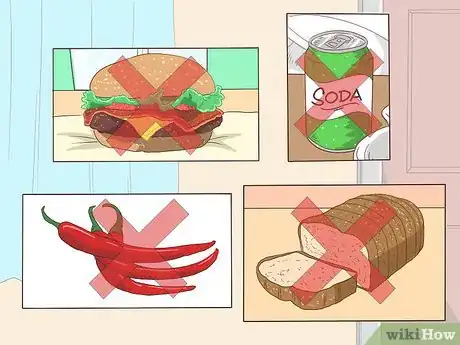


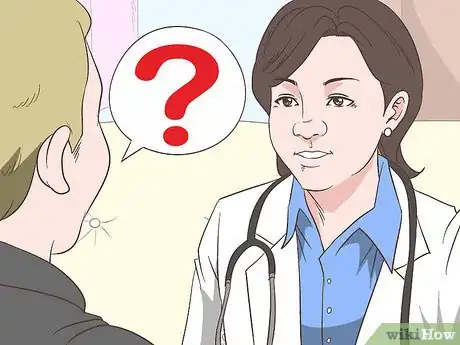
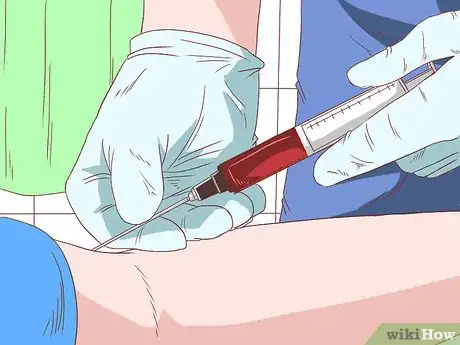


-Step-12-Version-2.webp)






-Step-9-Version-5.webp)
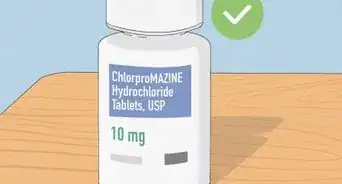

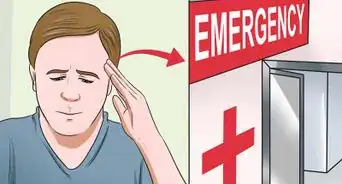
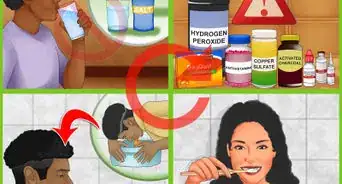
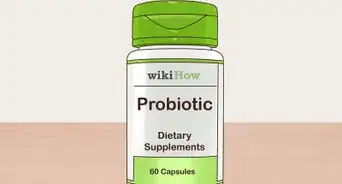
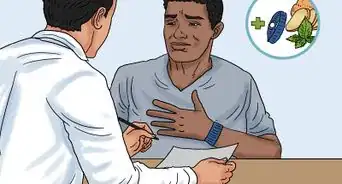












-Step-9-Version-5.webp)
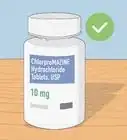



































Medical Disclaimer
The content of this article is not intended to be a substitute for professional medical advice, examination, diagnosis, or treatment. You should always contact your doctor or other qualified healthcare professional before starting, changing, or stopping any kind of health treatment.
Read More...